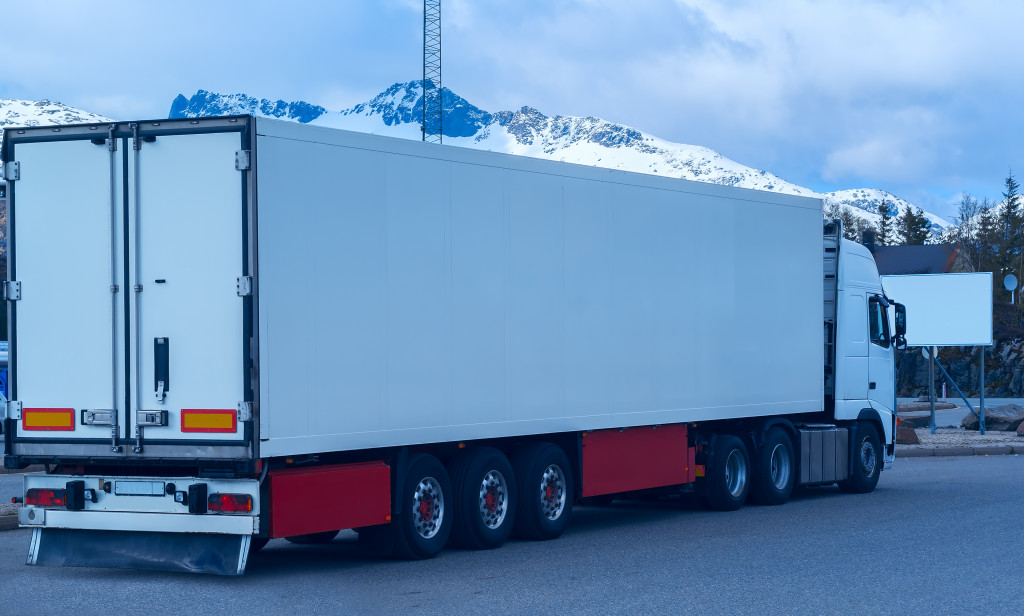“When does a truck lease make sense?” It’s one of the most common questions small businesses ask when considering upgrading to a fleet with more than two trucks.
For many, purchasing is still the preferred course of action, but leasing has grown in popularity, especially among corporations. Since every business has unique needs and financial restraints, there are no hard and fast rules to when a lease makes sense. However, you might consider one if:
1. You Don’t Have a Huge Capital Deposit
If you don’t have a huge deposit saved up, leasing can allow your business to purchase newer models every few years. Even if you only keep a truck for three or four years before upgrading, that’s still significantly more time behind the wheel than purchasing would allow.
If your business is constantly strapped for cash, leasing allows you to make lower monthly payments than if you purchased the truck. Also, leasing ensures that you’ll always have a truck, even if your cash is tied up in equipment or supplies.
Meanwhile, commercial loans are designed to help small businesses take out a big loan and pay it back over time. However, many banks and lending institutions aren’t willing to risk their money on a business that’s struggling to make payments.
If you need $100,000 or more for equipment, but your business doesn’t have the track record of qualifying for a commercial loan, leasing is often the only option.
2. You Need Customization Options
Since leased trucks are for business use only, they can be customized to suit your specific needs. Some leases allow buyers to completely outfit the cab’s interior and upgrade everything from seats to mirrors.
If your business is hauling items that require extra security, such as computer equipment or valuable artwork, you can work with a dealer to outfit the inside of your leased truck.
In some cases, leased trucks may come equipped with custom features from the factory. These include technologies that make these vehicles more effective and maintenance more efficient:
- Telematics: These systems allow drivers to monitor and control some or all of a truck’s functions from their smartphone. This includes navigation, diagnostics, and trailer maintenance. If you’re relying on your fleet for tight delivery deadlines, telematics can keep more eyes on the road and ensure that those shipments arrive as scheduled.
- Heated and cooled facilities: Trucks that are equipped with climate control not only keep drivers comfortable but also protect perishable deliveries. If you’re hauling foodstuff or other items that need to remain at a specific temperature, investing in trucks with heated or cooling features is an easy way to prevent wasted products.
- Fuel-saving devices: Some leased vehicles come equipped with a number of fuel-saving technologies, such as idle shut-off and regenerative braking systems. These can help you reduce your bills at the pump and stretch every gallon further.
Many things can happen when you want to customize your trucks, however. For one, are they aligned to your needs? To make sure you are spending money in the right places, consider leased equipment inspections as soon as the truck arrives and after the lease period is over.

3. The Business Needs Room to Grow
While leasing limits your choices regarding equipment upgrades, you can still make changes to your fleet in a relatively short amount. If your business is preparing for an expansion that requires more trucks, leasing allows you to have the newest models without tying up large amounts of capital.
As your business grows, you may need to add staff or overhaul equipment to meet growing demand. With a commercial loan, you might be limited in the amount of additional funding that you can get until the balance of the original loan is paid off.
Leasing allows your business to have an almost never-ending supply of working capital since you can make regular monthly payments rather than shell out a lump sum all at once. If your business is growing exponentially, leasing gives you the ability to keep up.
4. You Need a Truck Only Seasonally
Truck leases are typically shorter in duration than purchasing contracts. If you only need a rig part of the year or for a specific task, a short-term lease can save you money.
If your truck is out of commission for a few months of the year, a leasing contract might make more sense than purchasing and storing a vehicle at all times. With a lease, you can simply turn in the equipment when it’s not needed and replace it when spring arrives or your business requires more routes, deliveries, or cargo space.
5. You Want to Avoid Depreciation and Upfront Costs
When you buy a new car, it loses value the second that you drive off the lot. If you’re looking to get into a commercial vehicle, leasing can help keep cash in-house and reduce upfront costs.
An automobile’s depreciation rate is typically at its highest when it’s sold new, which means buying one can be an expensive proposition. With leasing, you can simply return the equipment when it’s time to upgrade or replace it. You’ll have nothing more to pay, and your business will have a steady stream of income coming in from the monthly lease payments.
With these five key points in mind, leasing can provide many benefits to your business. Whether you need a truck for the long haul or just the summer months, however, understanding how leasing works will help you find the right equipment for your company’s needs.
